Ray Davies is my biggest hero.
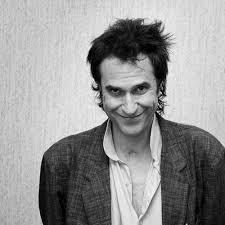
I’ve told many people this on many occasions. This has often been hard because his name is pronounced “Davis,” but if you call him that no one will have any idea who you are talking about. Every time Ray is introduced on TV, it is pronounced “Davees,” and Ray has never once corrected them. He may or may not have been bothered with that situation.
The only time I have ever heard someone pronounce Ray’s name correctly was in 1994, when I saw John Wesley Harding open for him in San Francisco the day I shook Ray’s hand, and the first time I saw him sing “Waterloo Sunset.”
I met Ray Davies in a Danish airport
Turned out to be a real nice guy
He said “Keep writing your songs, man
As long as you can”
And I think that was good advice
But actually he didn’t quite say that
I added that word “man”
I’m just following his good words
But of course I’m a very big fan
And I was just trying to make this thing scan
So congratulations to those of you
Who feel the need to congratulate your heroes
It may be tense for both of you
But I’m sure they appreciate the gesture
The song is actually more about crazy fans who meet their heroes like I did that day and depressingly mostly about the “person,” whose actual name you should never use, who shot John Lennon. Ray got shot ten years after that in New Orleans, but not because he was Ray Davies. His intentions were heroic, but not really well thought out, and in the aftermath he had to deal with more fans who wanted his autograph.
Ray Davies wrote a lot of hits mostly during the early days of the British Invasion.
Ray Davies is an artist. Most true artists do whatever the fuck they want and often tell people to just fuck off when they are told what to do with their art (mostly through their art). Miles Davies had no lyrics so he mostly and often hilariously just came out and said exactly that to just about everyone early, always, and often.
Ray has English teeth. Ray has a very noticeable gap between his two front teeth. Ray was likely told endlessly to fix the gap between his teeth. Ray still has that gap between his teeth.
I first heard Ray’s work on a cheap Marble Arch Greatest Hits collection.
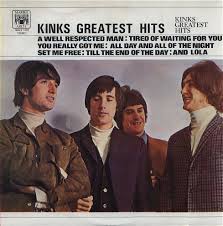
That was released in 1972 after “Lola,” became a hit but “Lola” shouldn’t really be put on an album with those songs.
Side One:
A Well Respected Man
Where Have All the Good Times Gone
Till the End of the Day
Set Me Free
Tired of Waiting for You
Side Two:
All Day and All of the Night
I Gotta Move
Lola
Wait till the Summer Comes Along (Dave Davies)
You Really Got Me
“I Gotta Move” was not a hit or even a single.
“Wait till the Summer Comes Along” was not a hit and wasn’t written by Ray, it was written by his brother Dave, who I also love.
The rest were monster hits, and enough for any bands entire career. Green Day’s whole career is basically exactly those other songs, some they covered (“Tired of Waiting for You” was released), some they stole, sometimes even note for note. You can Google the Green Day song “Warning” and the Kinks song “Picture Book” if you feel like it.
Hundreds if not thousands of bands came from those hits.
The Kinks where bigger than the Rolling Stones and maybe among British bands second only to the Beatles on their first U.S. tour in 1965. Something happened, people still argue about exactly what. A union guy may have been punched by Ray. Whatever happened the American Federation of Musicians saw that the Kinks did not tour the U.S. for four years.
“A Well Respected Man” was perhaps the last of those hits, and it was pretty much the path for the non-hits that would follow.
It contains the following lyric:
And he likes his own backyard,
And he likes his fags the best,
‘Cause he’s better than the rest,
And his own sweat smells the best,
And he hopes to grab his father’s loot,
When Pater passes on.
Now if you know anything about Ray you know he is in no way homophobic
Ray was the first one who signed Tom Robinson, who wrote and recorded “Britains national gay anthem,” “Glad to be Gay.”
Due the nature of Ray that relationship was cranky, often spiteful, and always hilarious.
Recently Tom Robinson said this about Ray, “Ray probably taught me the most important stuff, about connecting, having as clear a line of communication as you can between the creators and consumers of the music. On stage, nobody can touch him. He creates this bond with his audience.”
The use of the word “fag” above is an insult, although given Ray’s genius the use of the word can refer to what English people call cigarettes as well as how everyone else uses that term.
“Well Respected Man” was a brutal social takedown as utterly, viscous, and unsympathetic as anything written by Bob Dylan, John Lennon or even Eminem.
It’s an exception though because Ray kept writing biting social satires, in many styles, using many voices showing many moods. He could cut to the core. He could make his subject’s lives look small and meaningless.
I first truly understood his impact when I heard these lyrics from “Shangri-La.”
All the houses on the street have got a name
‘Cause all the houses in the street they look the same
The houses on the street I grew up on did not have names, but after that I first realized that they all did look exactly the same and then learned why that was so.
Now that song is a masterwork. I’ll put it up to anything ever written or recorded. It has many tones and moods. It is loud; it is soft; it is compassionate; it is mocking; it is extremely angry.
The subject’s life is completely shown to be delusional and completely insignificant, infinitely insignificant. From an outsider looking in it is a complete destruction of everything about that man and his entire life.
But Ray did not write that song as an outsider. He wrote it as a fellow human being and perhaps as a member of his family. Ray has nothing but compassion for that man. Ray has plenty of anger, but not towards him. He is one of Ray’s own, and Ray like my grandfather told me knows “to take care of his own” even when he’s tearing them apart. Ray also knew what he was angry about and exactly why.
“Face to Face” 1966
“Something Else by the Kinks” 1967
“The Kinks Are the Village Green Preservation Society” 1968
“Arthur or the Decline and Fall of the British Empire” 1969
All brilliant, all maybe not 100% perfect, but without reason to change a single note or lyric.
Kinks sales plummeted.
If you read now you will read that “The Kinks Are the Village Green Preservation Society” is Ray’s zenith. It may be. I loved it when I first heard it in 1982 or so and thought it was a lot like Edgar Lee Master’s “Spoon River Anthology,” which was one of the few things I liked when they made me read it at the time.
It was the work of a true artist, and perhaps the most clueless release in terms of making money of all time.
The title song had this lyric in it.
“God save little shops, china cups, and virginity”
But it also had this lyric.
Preserving the old ways from being abused
Protecting the new ways, for me and for you
What more can we do?
So its message was truly both conservative and progressive, and perhaps that message was smarter and more productive than any song written in 1968 that seemed vitally relevant in what was perhaps one of the world’s most chaotic years ever.
The album was one of the biggest commercial flops of all time, and that pretty much crushed Ray.
“Arthur,” which I think is the greatest concept album of all time did not burn up the charts either.
At some point in 1969, the ban was lifted and the Kinks could tour again in America, which they did so. They did so raggedly and sloppily from what I know.
There was some sympathy growing for his work though, which was best expressed at the time to me in the liner notes for the “Kinks Kronikles” compilation John Mendelsohn created to boost Ray’s status. “Kinks Kronikles” liner notes.
How much Ray cared about money then or now, I have no idea. He was however frustrated and pissed off. His work had been promoted badly, his managers were at best incompetent and at worst thieves, you could say the same for his label Pye/Reprise.
He recorded one last real album for Reprise. “Lola Versus Powerman and the Moneygoround, Part One.”
It is full of anger at the entire music industry, endless visceral anger. It contains perhaps Dave’s greatest and most loving song, “Strangers.”
It contains one of Ray’s most loving songs, about the sadness of poverty and the dignity of those who need to be on the dole “Get Back in the Line.”
Facing the world ain’t easy when there isn’t anything going
Standing at the corner waiting watching time go by
Will I go to work today or shall I bide my time
‘Cos when I see that union man walking down the street
He’s the man who decides if I live or I die, if I starve, or I eat
Then he walks up to me and the sun begins to shine
Then he walks right past and I know that I’ve got to get back in the line
Now I think of what my mamma told me
She always said that it would never ever work out
But all I want to do is make some money
And bring you home some wine
For I don’t ever want you to see me
Standing in that line
Cause that union man’s got such a hold over me
He’s the man who decides if I live or I die, if I starve, or I eat
Then he walks up to me and the sun begins to shine
Then he walks right past and I know that I’ve got to get back in the line
Get back, get back, get right back in the line
Ray was not on the dole, although he wrote mostly about who was and who was not on it, and their lives. He was a rock star. I have no idea what his net worth was then or now.
What I am sure of is that his record company told him to write a hit probably at least a thousand times.
So in the course of Ray’s album excoriating the not only the entire music industry, which he more than anyone knew was exactly that, but perhaps all industry, he said here is your fucking hit!
Then to show everyone that indeed if that was what he was about he let people know how easy that could have been for him, by following “Lola” with this song on the album.
I’ve been invited to a dinner with a prominent queen
And now I’ve got friends that I never knew I had before.
It’s strange how people want you when you record’s high
Cause when it drops down they just pass you by
Now my agent just called me and said it me:
“Son your record’s just got to Number One.”
And with church organs playing:
“And you know what this means? This means you can earn some real money!”
Ray had various nervous breakdowns during this era, but if you want to hear how completely bereft he was listen to this definition of pure madness.
“I only hope that I survive!”
That ended side one.
Side two started with the lovely “This Time Tomorrow,” which literally begins with the sound of the airplane Ray is getting on to figure out how to free himself.
I’ll leave the sun behind me and watch the clouds as they sadly pass me by
Seven miles below ma I can see the world and it ain’t so big at all
This time tomorrow what will we see
Field full of houses, endless rows of crowded streets
I don’t where I’m going, I don’t want to see
I feel the world below me looking up at me
Leave the sun behind me, and watch the clouds as they sadly pass me by
And I’m in perpetual motion and the world below doesn’t matter much to me
The album then does indeed end with the song “Got to be Free.”
Hush little baby don’t you cry
Soon the sun is going to shine
We’re going to be free like the birds and the bees
Running wild in the big country
Got to be free to say what I want
Make what I want and play what I want
I’ve got to be proud and stand up straight
And let people see I ain’t nobody’s slave
I’ve got to be free before it’s too late
I’ve just got to be free
There was no part two and there was no need for there to be one.
“Lola” nevertheless is a great fun song, and still art.
You know it as that song about a transvestite and someone too naive to know about who he was dancing with. Still, the writer has no contempt for the naive dancer or the supposed “transvestite” although you think that Ray gives away his hand when he sings this.
“I’m a man and so is Lola.”
But that’s not actually in the right context. What he sang was this:
“Well I’m not the world’s most masculine man
But I know what I am and I’m glad I’m a man
And so is Lola”
And as Mendelsohn pointed out at the time, that could mean that Lola is indeed a man, but it could also mean that Lola is just glad that the person he or she is dancing with is a man.”
I love Ray’s description of the perhaps seedy clubs lighting as “electric candlelight.”
Hilariously, much of this story is hilarious and also sad, frustrating and a crime. Reprise made Ray fly to England to change the words “Coca-Cola” (which I’m sure he meant descriptively and not as an endorsement) to “cherry cola.” I prefer the Coca-Cola version. Ray to this day, for whatever reason always sings it (and he’s sung it many times) “cherry cola.”
To further the fun and frustration. Glam rock was arriving and “Lola” seemed to fit into its androgyny.
Kinks management being Kinks management hooked Ray up with the makers of a truly terrible comedic film called “Percy” (I’ve seen it, you shouldn’t), oddly based on a book by Raymond Hithcock, who redeemed himself by siring Robin Hitchcock. “Percy” was the story of the first human penis transplant.
“Bang a Gong (Get It On) by T-Rex, would have been exactly the theme song the makers of Percy wanted and expected.
Instead, they got a ballad called God’s Children, which did not seem happy about the notion of penis transplants and again hilariously didn’t seem to be happy about even the simplest, sight saving or even life saving transplants. Artists are artists. Ray is an artist.
Man made the buildings that reach for the sky
And man made the motorcar and learned how to fly
But he didn’t make the flowers and he didn’t make the trees
And he didn’t make you and he didn’t make me
And he got no right to turn us into machines
He’s got no right at all
Cause we are all God’s children
And he got no right to change us
Oh, we gotta go back the way the good lord made us all
Don’t want this world to change me
I want to go back the way the good lord made me
Same lungs that he gave me to breath with
Same eyes he gave me to see with
Probably not a take that Stevie Wonder fans or most people who have had life saving transplants would favor, but a cranky artistic statement about humanity nonetheless.
Ray then fled Pye/Reprise for RCA.
His first album for them was “Muswell Hillbillies” another masterwork describing the dreams, the flaws, and the details of he and “his” people.
I always thought that album would make a great Broadway musical.
In fact, after that Ray for years did nothing, but make albums intended to be staged as musicals, with basically zero financial success.
Abba then did “Mama Mia” and made a boatload of money.
I’ve always said. It does no good financially to be ahead of your time. It pays to be exactly of your time!
In 1976, Ray had had enough. He signed with Clive Davis and Arista. If you know Clive Davis, he is all about hearing a single and making money (see “Clive Davis and Kelly Clarkson”).
Ray did write hits and he did so mostly returning to that “Marble Arch Greatest Hits” sound abetted by the success of Van Halen’s huge hit cover of the song that started it all “You Really Got Me.”
This was basically the first new Kinks “hit” and it’s a wonderful song. It didn’t really chart. Nothing really charted until 1982 when Come Dancing hit #6 and that took forever and did so thanks to MTV and it’s great video, but it was the first step back to increased album sales and huge, amazing concerts.
There’s a lady plays her favorite records
On the jukebox every day.
All day long she plays the same old songs,
And she believes the things that they say.
Other ladies like to prance around
And flirt and dance the whole night through,
But she just sits and listens to here jukebox records,
‘Cause that’s all that she wants to do.
She sings along with all the saddest songs,
And she believes the stories are real.
She let’s the music dictate the way that she feels.
It’s only jukebox music,
Only jukebox music.
It’s only music,
Only jukebox music,
Only jukebox music.
Seems to me she’s in a fantasy.
She’s livin’ in a world of her own.
And we all agree that she’s a mystery,
Because she’d rather be all alone.
Every guy will do his best to try
To put that music out of her head.
Forget all the songs,
And just dance to the music instead.
It’s only jukebox music,
Only jukebox music.
It’s only music,
Only jukebox music,
Only jukebox music.
It’s all because of that music
That we’re slowly driftin’ apart.
But it’s only there to dance to,
So you shouldn’t take it to heart.
Music, only jukebox music.
Only music, only jukebox music.
From then on Ray wrote a ton of great songs most in that early power chord style. As a live band, they became tighter than ever, and that is how I from 1982 on first saw them in person as a unit live. That was how I would always see them as a unit live for the next decade.
In 1984, I turned my roommate on to the Kinks especially that “Face to Face” through “Muswell Hillbillies” era. He went to a show with me, and I warned him that it would be a great show, but that with small exceptions “Lola” and probably only “Lola” that he would hear none of those songs.
Again great shows.
On October 3rd, 1981 the Kinks sold out Madison Square Garden.
Ray for some reason took with him a copy of “Village Green Preservation Society.”
Few songs from that era were played that night, although pointedly the show closed with exactly that song, which may have been the only time that decade that it was indeed played live.
The New York Times quoted Ray at that time.
At 37, Ray Davies says that two decades of making records and touring have been wearing, but that he has no regrets. ”When I was growing up in North London, there was no future that I could see,” he said recently. ”I was good at art and creative writing, but academically I was not very bright. I used to walk around the streets saying, ‘There’s no hope for me. They’re going to put me in a factory.’ And there was no way I was going to end up in a factory, so I decided I was going to have to fight my way out. I went to art college during the day, soccer training in the evenings, and after that I learned how to play guitar by doing it, playing in a rhythm and blues group. When I heard Chuck Berry for the first time, I left art college and said, music, yeah, that’s it.”
In 1996, the officially Kinks broke up. Before that time, the brothers had been playing solo shows. My memory might not be perfect, but the one to first have the courage the play deep cuts from that forgotten era was the lamentably discounted but infinitely loyal Dave.
I saw him sing the soft and tender song “Young and Innocent Days” from Arthur and was shocked and joyously tearful.
The day I met Ray was in 1994, and it was basically the last real time I spent with the girl I had fallen in love, who I had spent so much time rambling on about Ray Davies and the Kinks.
Upon meeting her, of course, I made her a mix tape and of course it contained my favorite, completely unheard love song, where the singer describes himself as a “little man,” it probably referred to the British show that “All in the Family” was based on, “Till Death Do Us Part.”
It appeared on the rarest of rare albums that nearly no one ever owned (the album was just a collection of discarded tracks) called “The Great Lost Kinks Album.” It was released by Pye/Reprise to make the last cent they could off Ray and the Kinks
I’m only me,
Not someone better,
Not someone good.
I’d be a soldier,
That’s if I only could.
If I were king,
I’d tell my army,
To change the world.
Then I’d be someone,
Like you want me to be.
In my little life,
I know that the world must keep on turning,
Even though it leaves me far behind.
Life is like a school,
But I’m not prepared to keep on learning,
Even though it treats me like a fool.
This is our lot,
To live together,
Not live apart.
Let’s stay together,
Until death us do part.
Not just a day,
But till forever,
Just as the stars,
Just as the ending,
Until death us do part.
I don’t know how much of the real Ray is in there (I can show you many similar lyrics of his), but it was 100% me.
And of course, he had already written everything that needed to be said about our end too.
During the ’90s Blur and other bands led something called “Britpop” and cited Ray.
This is a fine song from 1995:
It’s singer and co-writer Damon Albarn would probably gladly hear you praise it and then tell you to listen to this:
According to the internet, which in these matters I believe has close to zero veracity, Ray’s net worth is $12 million.
Most would say he deserves more. I have no idea how he feels about his net worth, likely he doesn’t care what it is nearly as much as the amount of money that was actually stolen or cheated out of his work.
He could have spent more time making money or at least protecting that which he did earn and should have received.
He may even be one of the most self destructive figures in music history.
But he is an artist, and he’s mostly done exactly what he wanted even during his time with Clive Davis.
He may have given it to his brother to sing, but he told you that in 1965, just a year after his first big hit.

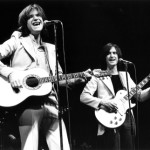

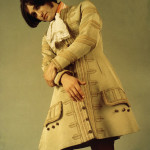
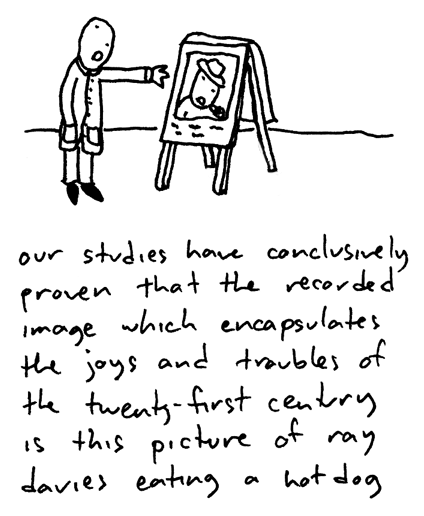


Yep, I told Dave that and he called me HIS hero. Pretty awesome guys both of them.
I first heard that growling guitar in 1964 with the release of You Really Got Me and I was hooked forever. I was 13 years old and The Kinks extensive catalog of music has been the soundtrack of my life ever since. As I grew older and matured, so did the sophistication of Ray’s lyrics and I loved it. Kink Kontroversy in 1965 was IMHO, a really good album and set the stage for the great albums to follow. While they were a commercial bust, their music resonated with me and spoke to my heart and intellect, all with great melodies and musicianship to boot! All I can say is thank you Ray and Dave Davies and God Save The Kinks!
You’ve done it one year longer than me the same way as me. Thanks for commenting.
Since 1964 I’ve lived for the kinks & Ray’s music and it’s still the only thing that gets me by.